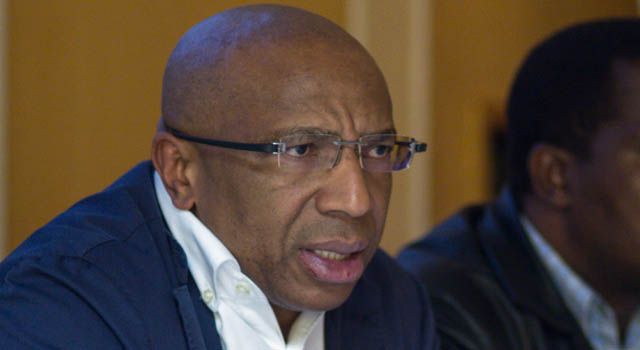
Telkom will open its telecommunications exchanges to Internet service providers using an open-access model in an effort to stimulate demand for fixed-line broadband in South Africa.
“To further stimulate access to broadband, we will be making around 200 of our exchanges available to Internet service providers on an open-access basis during 2015,” Telkom CEO Sipho Maseko said in the company’s latest annual report, which was published on Monday.
Though it’s not completely clear yet what the decision means, it appears to be a marked reversal from Telkom’s approach of old, where it kept tight control of its assets, preventing rival service providers from getting access to its last-mile infrastructure.
Indeed, Telkom has for five years fought attempts by rival Neotel to use regulatory processes to get access to key exchanges owned by the company. A Neotel complaint to communications regulator Icasa, seeking access to key Telkom exchanges, is still the subject of a high court application by the fixed-line incumbent.
Telkom is reluctant to provide details about how its plan to open its exchanges to rival Internet service providers will work in practice – the plan is still in the early stages of development, apparently.
Asked for further comment, company spokesman Jacqui O’Sullivan said Telkom intends running “pilot projects based on data uptake to fully realise the profitability of our exchanges”.
“We believe this would be the right basis through which we could create an environment for open access in future,” O’Sullivan said.
It’s widely known that many of Telkom’s exchanges, especially in smaller regional towns, are not profitable for the company.
“We are initially doing this in areas where it is easier to determine total cost of service to refine the model and will look at rolling out open access once we have constructed a repeatable model for this.”
Open access is a model of telecoms that has been pioneered in South Africa by new fibre players such as Dark Fibre Africa, Link Africa and Vumatel. In essence, it’s a model where owners of telecoms infrastructure provide access, at varying levels, to their networks to competing service providers. The degree to which Telkom intends opening its last-mile network is still open to question.
Open access is typically favoured by challenger operators, and not by big incumbents. But in South Africa, MTN and Telkom have now both professed their support of the model, at least to some extent.
Earlier this month, MTN said it now supports the concept of open-access for the deployment of fibre-to-the-home (FTTH) infrastructure in South Africa. It said it believes the model provides customers and independent service providers who use its FTTH network with “flexibility and a seamless and distinct customer experience”.

Tim Parle, senior telecoms consultant at technology consultancy BMI-TechKnowledge, said Telkom’s plan to open 200 exchanges appears to tie in with its FTTH deployment plans.
The 2015 annual report, he said, reveals that the company intends offering access to its new-generation broadband access technologies – including its multi-service access nodes (MSANs) – to other Internet service providers on an open-access basis.
Telkom is rolling out MSAN cabinets in suburban streets across South Africa to provide high-speed copper VDSL (up to 40Mbit/s) and fibre (up to 100Mbit/s) access to consumers.
“It is not immediately evident what this is,” Parle said of Telkom’s plans, “but my hunch is that these are honeyed words for the wholesale fibre broadband access product. This is to fibre what Telkom’s IP Connect traditionally has been to ADSL and VDSL — the mechanism by which other Internet service providers can access Telkom end users. This is already being used by Vox Telecom, WebAfrica, Afrihost and others in their FTTH products.
“All told, this looks like a progressive move from Telkom, which has realised that it’s not the only game in town. It also resonates with moves in the UK and elsewhere to open up exchanges,” he said. — © 2015 NewsCentral Media




